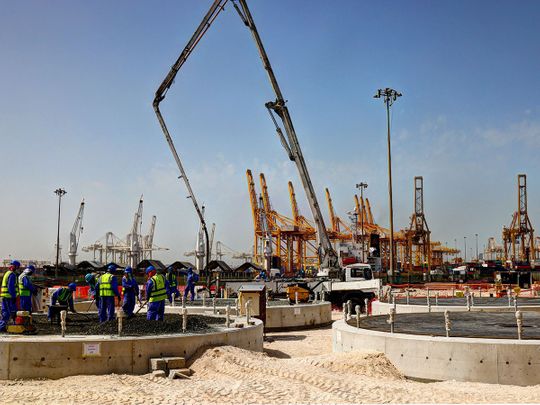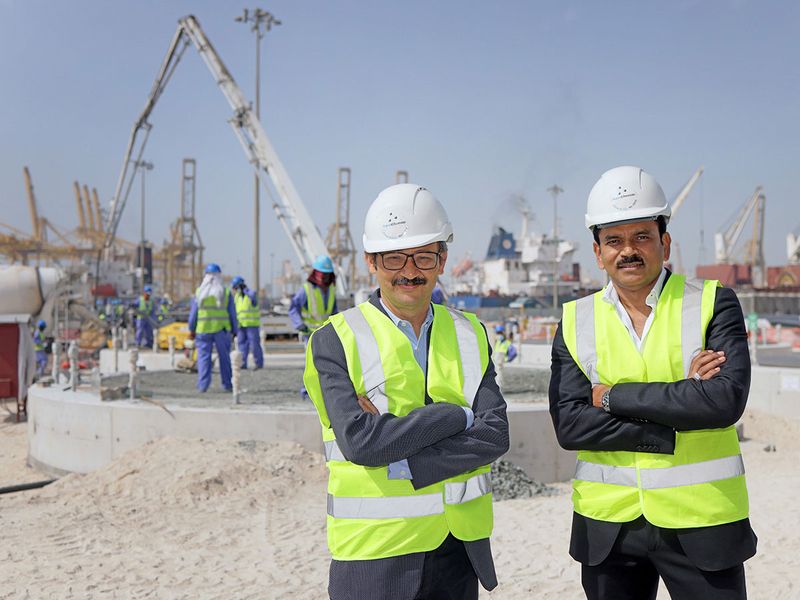
Dubai: Businesses delaying new investments or going slow with existing projects to preserve cash where possible – that’s what COVID-19 did to UAE’s private sector entities plans last year.
But the promoters of AquaChemie in Dubai didn’t seem to have got that particular memo. In November last, the company said it’s going ahead with a Dh150 million project in Jebel Ali to build storage and terminal for petrochemicals. The investments made it one of the biggest from a privately-owned business in the UAE last year.
The completion of the facility is expected by April 2022. “This terminal is being funded with around 40 per cent as own capital and 60 per cent term loans from banks,” said Subroto Saha, Director at AquaChemie. “However, the final equation would be arrived only after finalizing the deal with shortlisted banks.
“But a major part of the equity has already been deployed to kickstart the project.”

Industrial boost
Interestingly, since the second-half of last year, the UAE’s industrial sector has been keeping fairly busy. Much of it is, of course, being driven by the Abu Dhabi energy giant ADNOC; but giant solar and other renewables-based projects are getting off the ground from the likes of DEWA and Sharjah’s Bee’ah.
Kingpin in petrochemical
With the new project, AquaChemie wants to place itself in the centre of the region’s petrochemicals trade.
“This terminal is not to sell storage space… but to use the capacity for our own trading and distribution,” said Saha. “We received strong interest from global chemical manufacturers to store and distribute their products in the region.
“These interests would be converted to commitment/contracts, closer to the commissioning date, expected in April 2022. Currently we are building 40,000 MT (metric tonnes) of products to be stored in bulk storage and drums.
“For AquaChemie, this would be the first facility - but the several trade/ business partners we would associate with have several facility experiences. Besides, we ourselves have a direct connect with several end-users and are dealing in chemicals (although in smaller parcels of road tankers) for over a decade in the region.”
"This is proven by the fact that when we are currently trying third-party hiring of petrochemical tanks in Jebel Ali, there are hardly any reasonable cost option. Besides, several multinationals are looking at bulk storage tanks to distribute their products in the region, produced elsewhere.
"Petrochemical terminal in an efficient port like Jebel Ali (with minimum demurrage) Is expected to have huge demand. Additional capacities in Asia - in India and Pakistan - cannot efficiently serve the surge in Middle East end-user demand or regional manufacturer excess supply distribution."
Excess capacity?
In talking about storage and capacity, Saha drives home one point – there’s no excess capacity in the petrochemical space.
All through last year as lockdowns became the norm globally and fuel demand tanked, it set off a crisis for the oil industry. Suddenly, there was excess oil sloshing around everywhere, and storage capacities were filled to the brim. Even tankers were pulled in to store oil that no one was buying any more.
Saha says what was the case for oil does not apply to petrochemicals and their storage.
“Oil and oil derivatives technically refers to petroleum products like gasoline, diesel or lube oil,” he added. “However, this Jebel Ali terminal is for downstream petrochemical products, which are raw material/intermediates for the tertiary product industry such as other petrochemical derivatives, polymer and plastic, textiles, pharma, agrochemicals, paints, etc.
“And where no decline is envisaged with the ever growing population of the world. This terminal would serve as the petrochemical hub for the region.”








